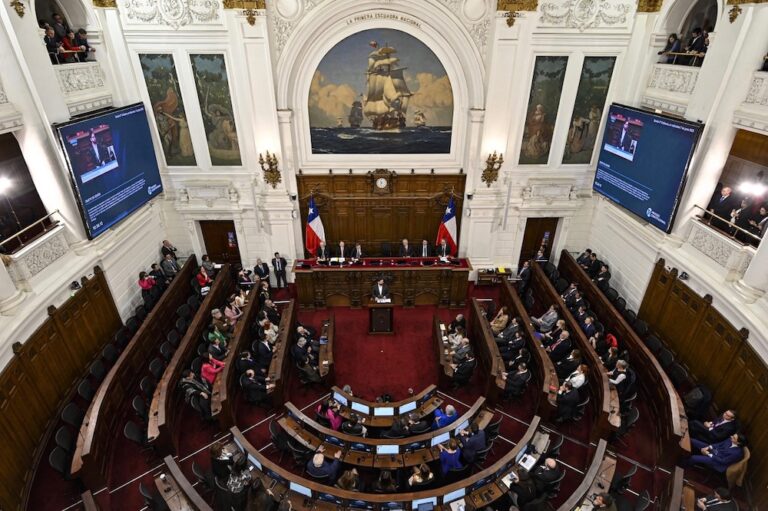(IAPA/IFEX) – The following is an IAPA press release: IAPA says new press law in Chile unnecessary All that’s needed is to repeal regulations curtailing press freedom, people’s right to information MIAMI, Florida (May 30) — The Inter American Press Association today called a new press law in Chile “another way to regulate the news […]
(IAPA/IFEX) – The following is an IAPA press release:
IAPA says new press law in Chile unnecessary
All that’s needed is to repeal regulations curtailing press freedom, people’s right to information
MIAMI, Florida (May 30) — The Inter American Press Association today called a new press law in Chile “another way to regulate the news media and journalists” and said that instead of such a law all that was needed was to get rid of all the rules and regulations curtailing press freedom.
The Law on Freedom of Opinion and Information and the Practice of Journalism was signed into law by the Chilean president on May 18.
While calling it “inadequate” and “failing to meet expectations” for the full recognition of press freedom and free speech, the IAPA acknowledged some positive signs in the law. Among these was the repeal of regulations giving judges discretionary power to ban court reporting, the fact that those accused of committing offenses in the press against members of the military may no longer be tried by military tribunals, and the revocation of Article 6, Paragraph B of the State Security Law under terms of which journalists could face criminal charges for allegedly offending senior officials by what they wrote.
“We would have been fully satisfied had the Chilean government repealed all the regulations limiting freedom of information, without the need to create any new legislation,” IAPA President Danilo Arbilla said. “While it is only fair to recognize that certain absurd restrictions of the media and individual journalists have been eliminated, it is also true that a new regulatory framework has been created to curtail the practice of journalism.”
The new law maintains as a criminal offense the insult of officials as provided for under the Penal Code, defines journalists as only those with a university degree, making that a requirement to work as a journalist in government agencies, and increases allowable damages awards, providing for additional compensatory damages in the case of libel or defamation committed in the press – seen by the IAPA as a restriction of every person’s freedom of expression.
Arbilla, editor of the Montevideo, Uruguay, news weekly Búsqueda, added that the IAPA “always rejects any kind of press law reform, because under the pretext of improving matters such reform actually conceals a desire to regulate the press and thus free speech and freedom of information that it is claimed to be attempting to guarantee.”
He stressed the IAPA contention that “the best press law is no press law.” The new one in Chile, he said, demonstrates that rather than legislate on behalf of freedom of the press and of expression and the public’s right to information, what governments in fact do is create new regulations that restrict such freedoms.
The IAPA, Arbilla added, felt the law had failed to meet expectations concerning freedom of expression. A press law should at least stress such things as everyone’s right to access public information and set out stiff penalties for officials who refuse to provide it.
He said the new legislation contained other serious restrictions on press freedom, such as a mandatory requirement to publish corrections or clarifications and a conscience clause.
Also of concern to the hemispheric free-press organization was a proposal to require newspapers to publish the size of their circulation on their front pages. Although this was not included in the new law, the Chilean government warned it was planning to introduce a bill on this if the newspapers themselves failed to come to agreement on the issue with the advertising agencies’ association and individual advertisers.
Arbilla said it was unheard of for a government, contrary to free enterprise, to attempt to regulate matters of specific relevance to the private sector. As for circulation figures, he said, the example of many other countries should be followed, where newspapers voluntarily utilize circulation audit companies. “Such business practices by the media are strictly voluntary and no government should try to make them obligatory,” Arbilla declared.


